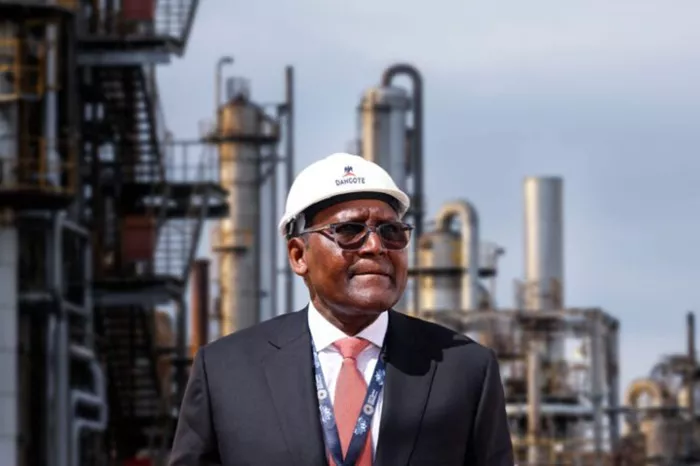Nigeria’s Dangote Refinery, owned by Africa’s wealthiest man, Aliko Dangote, has commenced the export of refined petroleum products to neighboring West African countries, marking a significant milestone for the country’s oil industry. According to a report on Tuesday, this development signals the refinery’s expanding role in regional energy markets.
While the refinery is sourcing crude oil from the Nigerian National Petroleum Company Limited (NNPCL) in Naira, allegations have surfaced suggesting that the refinery is conducting its export transactions in U.S. dollars, a claim that has raised concerns about the currency practices behind the export deal. This follows a directive from President Bola Ahmed Tinubu, who ordered the sale of crude oil to Dangote Refinery in Naira, a policy reportedly implemented by the NNPCL.
This report, based on data from ship-tracking platforms such as Vortexa, Kpler, and Precise Intelligence, revealed that a tanker named The CL Jane Austen recently loaded more than 300,000 barrels of gasoline from the Dangote Refinery. The shipment was transported to waters off the coast of Togo, with the vessel currently stationed near Lome, a well-known area for ship-to-ship transfers.
This export development follows a statement by the chairman of the Ghana Ports Authority, who, speaking at the OTL Africa Downstream Oil Conference in Lagos, emphasized the economic benefits of importing refined products from Nigeria rather than Europe. He noted that sourcing fuel from Nigeria could reduce freight costs and, in turn, lower the prices of goods and services in the region. “If the refinery reaches 650,000 barrels per day, the volume would be too large for Nigeria alone,” he said. “It will be much easier for us to import from Nigeria, which will bring down our prices.”
In a related report, it was revealed that the Dangote Refinery plans to export refined products to countries including South Africa, Angola, and Namibia. Sources familiar with the discussions indicated that negotiations are also underway with Ghana, Niger, Chad, Burkina Faso, and the Central African Republic.
Though Dangote Refinery has yet to officially confirm the commencement of these exports, the refinery has already reached a significant agreement with the Independent Petroleum Marketers Association of Nigeria (IPMAN), securing a deal to supply 60 million liters of fuel weekly.
As the Dangote Refinery’s operations grow, fuel prices in Nigeria have shown a slight decrease, raising hopes that the refinery’s production could ease inflationary pressures in the country in the coming months.
Related topic:
Why Is Diesel Fuel More Expensive Than Gasoline?

